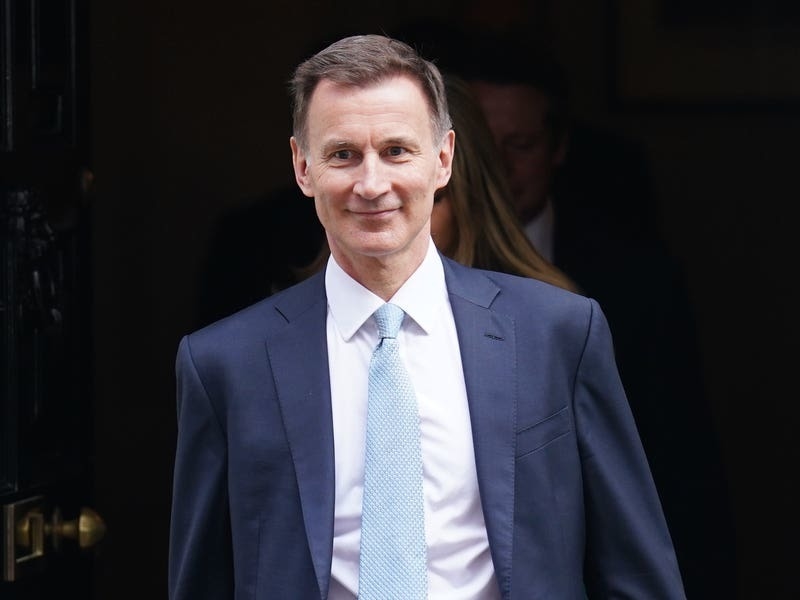And when it comes to providing financial support for high-level infertility treatment, now Jersey is looking to Scotland, which has one of the best systems in the British Isles for providing fair and equitable treatment to individuals and couples wanting to have a family but struggling to conceive.
It’s an encouraging aim for our Island to set its sights on such a system, especially when you consider where we are starting from.
Currently in Jersey only those with a combined household income of less than £34,000 get any financial help with IVF. In 2019, 226 patients from Jersey received IVF treatment. Not a single one qualified for the means-tested help. Other patients under the age of 40 have their drugs paid for by the government, but they have to pick up the bill for the actual treatment, which runs to thousands of pounds per cycle.
It means some couples quite simply cannot afford to pursue IVF, while others spend years saving up for one cycle, or borrow from family, friends and banks in the hope of one day being able to take home their child. Some are successful; others aren’t. But with the cost per cycle of IVF so high and for Jersey couples involving trips away from the Island which add to the cost, for most the financial implications are at best yet another burden, at worst a complete barrier.
In Scotland, however, the government funds up to three cycles of IVF for qualifying couples regardless of their income as long as the woman is below the age of 40. For those aged 40 to 42 one cycle is funded.
The Scottish system reflects the recommendations of the National Institute for Health and Care Excellence.
Now Jersey says it plans to review its funding model, with an aspiration to aim for something like the Scottish system eventually.
It will be, according to medical director Patrick Armstrong, a journey expected to take three to five years. And it will require political as well as internal Health discussions to be able to achieve that aim of matching Scotland.
Regular readers of this column will know my personal experience of IVF and support for improving access to it for all, no matter how much they earn.
Jersey also has one of the highest proportions of working women in the world, which in turn contributes to a trend in which women tend to have children or look to start their families later on average than those in other places around the globe.
Our high cost of living and especially housing adds to the pressure to focus on career first and children later.
But having children later can also come with increased risks that help may be needed.
Then there’s the impact on mental health of infertility, and on wellbeing in general, and the cost financially and otherwise this can have on a community.
Jersey’s birth rate has also been falling in recent years. Is this a trend we are content with?
And IVF is a clear example of Jersey’s widening gap between ‘rich and poor’, the ‘have-access-to and have-not-got-access-tos’.
All of a sudden you can see how what may seem like a personal issue for individuals and couples is actually a societal problem that as an island we need to appreciate is part of a bigger picture.
This being the case, any move towards a new funding model, especially if it is going to require political decisions and some extra cash from somewhere, is going to require a public conversation.
Such engagement on an issue as emotive as IVF is not going to be easy. And there will be people out there who will jump to share their views quickly without perhaps thinking about the impact how they phrase those beliefs may have on other members of society.
The fact that it may take three to five years to realise Mr Armstrong’s aim of achieving anything like the Scottish model will be disappointing for those going through IVF, and struggling to fund it, today.
And even if we do achieve such a model, it’s important to note this will not help all couples at every stage – some won’t meet the criteria (as I already had a child and experienced secondary infertility it’s unlikely I would be covered, for example), while others will need to go beyond the three free cycles.
But it does represent an opportunity to get this right, and to take the Jersey community with the policymakers on their important journey. It doesn’t need to be about changing the views of those opposed to IVF or funding some cycles from the public purse. It does need to be about raising awareness, opening up the conversation and educating people – including our States Members, who will be expected to make final decisions, particularly around money – about IVF, infertility and its place within our society in general.
Around a decade ago a similar public conversation began about organ donation, and there was some nervousness about how Islanders would react and engage. Fast-forward a few years, and, little by little, it became something okay to talk about, discuss and even debate in the States Assembly.
Our Health Department has taken an important first step by aiming high and setting in motion a review of the funding model for high-level infertility treatment. Now the hard work can really begin.






